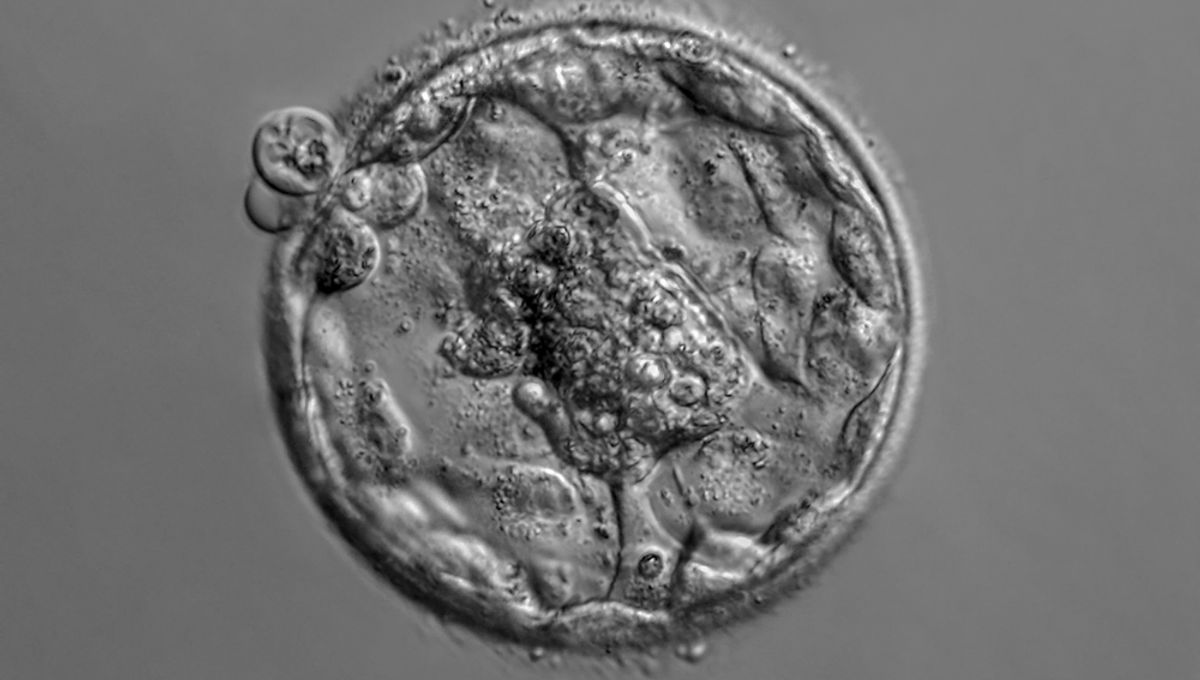
Embryo-like structures have been created from monkey stem cells and implanted into female monkeys, marking the first time this has ever been performed. The new research hopes to push forward our knowledge of embryo development and early organ formation, which is typically slowed by ethical concerns.
“The molecular mechanisms of human embryogenesis and organogenesis are largely unclear,” says co-corresponding author Zhen Liu of the Chinese Academy of Sciences (CAS) in Shanghai, in a statement.
“Because monkeys are closely related to humans evolutionarily, we hope the study of these models will deepen our understanding of human embryonic development, including shedding light on some of the causes of early miscarriages.”
Understanding how human fetuses develop at a cellular level is an extremely difficult task for a number of reasons. It is currently impossible to watch development in real-time, and obtaining fetuses for research purposes ranges from difficult in some countries, to illegal in many others. This is even before the ethics of such research are even considered, with some believing morally that fetuses are equal to people and invasive research is therefore ethically questionable.
To circumvent such problems in many research areas such as neuroscience, scientists turn to animal research in the hopes it translates well into humans. Looking to do the same in this paper, researchers from the Chinese Academy of Sciences in Shanghai took macaque embryonic stem cells and exposed them to growth factors to stimulate their development into early embryo-like structures.
The structures were cultured in lab conditions and analyzed under a microscope, where they resembled natural blastocysts (that’s the ball of dividing cells seen right at the start of embryo development). The structures, called blastoids, continued to develop, forming what resembled a yolk sac and then the three germ layers seen on a normal body. Subsequent analysis of the cells showed that their genes were expressed in a similar way to a natural blastocyst.
At this stage, the blastoids were implanted into female monkeys’ uteruses – just three out of eight successfully implanted – to continue growth. The structures resulted in hormone release within the females akin to a real pregnancy, and they developed gestation sacs and amniotic fluid. After just a week, though, the structures could not form viable fetuses and disappeared.
While the research is fascinating and could lay the groundwork for future understanding of early development, it does raise ethical concerns. Such research raises questions about how far scientists are allowed to develop embryos – in humans, the cut-off is 14 days unless explicit permission is granted, but this research used blastoids that were 7 days old in vitro and then continued to grow them in vivo beyond 14 days. It is unclear how long they would have developed them had grown further in the monkeys.
The researchers argue that as the structures had no chance of being viable as an organism and the structures still greatly differ from a natural blastocyst, so the argument of growth potential does not apply. They also state that such research is needed to further our understanding of developmental disorders.
The team now hopes that their new findings can be used to help the field while still being in line with stringent ethical guidelines on human research, as both a starting point and a model for future studies.
The research is published in the journal Cell Stem Cell.
Source Link: Embryo-Like Structures Created From Monkey Stem Cells For The First Time